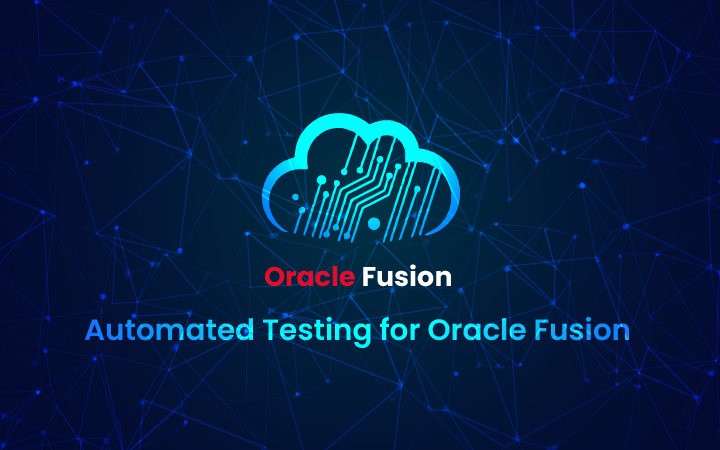The word Fusion was first introduced by Oracle due to its ‘acquisition spree‘ involving billions of dollars and several powerful software in the same year. Made available to the public by 2011, Oracle Fusion aimed to be an integrated applications suite, having features and functionalities that would work both on the cloud and on-premises. It also promised to deliver avant-garde customer experience and business intelligence.
A decade later, in September 2021, Oracle also introduced Fusion Marketing under the Oracle Advertising and Customer Experience (CX) range of services, using Artificial Intelligence (AI) to automate digital marketing campaigns and identify qualified leads.
More recently, India’s largest automotive aftermarket digital platform – myTVS – selected Oracle Fusion Cloud Applications to unify operations and improve business efficiency. For example, with Oracle Fusion Applications for finance and supply chain, myTVS can integrate and digitalize processes, enhance business insights, and improve decision-making to support future expansion.
This is just one instance of Oracle Fusion being an integral part of a firm’s digital journey, driving business transformation like never before. With many firms using the solution to make a compelling impact, there is a surge in the need for oracle cloud automated testing services.
Automated Oracle Testing – The Low-Hanging Fruit Of Business Transformation
Speed takes centerstage without fail when it comes to digital transformation, followed by agility. To gain an unparalleled advantage amidst intensifying competition, businesses must focus on attaining the ‘first-mover advantage.’ Therefore, they need to accelerate the speed of delivering solutions on marketing while maintaining their core business operations flawlessly.
Oracle cloud automated testing, therefore, is in demand as it offers much more reliable and quicker feedback to software teams using Oracle’s suite of applications, supporting core business functions’ continuity. In addition, it is about making incremental changes to deliver solutions at the speed of thought. This requires minimizing defects first, then reducing the costs of fixing them.
Teams can split business ideas into smaller software increments and deliver software with more velocity. Test automation can be leveraged to accelerate validation cycles with tests performed upstream, and the firm can benefit from a consistent flow of changes with minimal rework and risks.
In addition, oracle cloud automated testing also helps measure the effective delivery of value from a customer point of view, and test automation can be leveraged to measure the value delivered based on customer journeys, freeing the team from performing costly tests.
Organizations can capitalize on automated tests focused on value to monitor the value delivered in production and perform customer journey monitoring based on the critical value metrics as simple as – order entry.
The continuous feedback provided by test automation helps businesses achieve frictionless business changes. Organizations can implement feedback along the software lifecycle with continuous test automation and benefit from systematic and automated feedback on their system, perform more business changes with limited disruption, and accelerate the business transformation that always needs to go faster.
The caveat? Testing must be performed in just-in-time, alongside business changes and operations, to maximize its value to the entire organization.
Why is Automated Oracle Cloud Testing crucial for enterprises?
There are three main reasons that highlight the need for test automation for Oracle applications. In no particular order, these are:
- Frequent updates – The frequent updates required in Oracle applications to keep up with changing market trends and business processes require testing that manual testing cannot match in speed.
- Integrations – Oracle applications typically require multiple integrations, and testing end-to-end business flows without automation can be a herculean task.
- Customizations – The risk of breakage due to updates or changes increases with the number of customizations, and validating every change with manual testing is challenging.
Test automation can be helpful, but it may not deliver its full potential if it requires coding or does not support diverse technologies, leaving significant gaps.
Best practices for Oracle test automation
- Start with a clear understanding of the expected behavior: The first step in Oracle test automation is to clearly define the expected behavior of the software system. This requires close collaboration between the development team and business stakeholders to ensure that the requirements are well-defined and unambiguous.
- Choose the right automation tool: Many tools are available, each with strengths and weaknesses. It’s essential to select the tool that best meets the needs of your team and your software system. Consider factors such as the system’s complexity, the type of testing required, and the technical expertise required.
- Define and document test cases: To ensure that the testing process is efficient and effective, it’s important to define and document them. This includes identifying the steps required to execute the test, the expected outcome, and any pre- or post-conditions.
- Automate test execution: Automated testing can save time and increase accuracy by executing tests more quickly and consistently than manual testing. Businesses must automate test execution wherever possible to speed up the testing process.
- Regularly review and stay up to date with updates: Oracle follows a quarterly release cycle after adding new functionalities and enhancements to the Oracle Cloud product. So, regular reviewing and testing for Oracle Cloud are crucial as it reflects the current state of the system and can also help identify any discrepancies or gaps in the system’s behavior.
- Prioritize testing based on risk and criticality: It’s important to prioritize testing based on the risk and criticality of the software system. This ensures that the most important tests are executed first and that any critical issues are identified and addressed quickly.
- Monitor and analyze test results: Monitoring and analyzing test results can provide valuable insights into the software system’s performance. Use this information to identify improvement areas and refine the testing process.
Challenges and the Future of Testing Oracle Fusion
Improving the customer experience (CX) significantly impacts the bottom line of any business. For example, Temkin Group found that for companies with revenues of over $1 Bn, even a moderate increase in CX generates an average revenue increase of $823 million over three years.
An investment in CX can also reduce operational costs. For instance, American Express found that customers would pay 17% more with a business that offered exceptional customer service.
Today, the modern Oracle Fusion Cloud Suite helps deliver contextual customer experiences. In addition, with automated Oracle testing, businesses need to ensure that they deliver on the promise of quality, not just speed and efficiency. Therefore, the application infrastructure, including cloud-based and on-prem software, will become flexible, scalable, and easy to use for customers.
The challenge here is that the high uptime and availability of applications in and around Oracle depend on the thoroughness of testing. And the only way to achieve it is by figuring out a solution that mitigates all risks across channels and accelerates enterprise transformations with fulfilling customer journeys.
To Conclude
Ensuring the seamless functioning of the Oracle Fusion suite of applications is critical to meet future requirements for various business functions and establishing great CX. Lack of thorough testing is one of the most urgent challenges that need to be mitigated to make a compelling impact on customers.
Avo Assure – the intelligent, AI-driven, platform-agnostic, no-code test automation solution enables clients to test Oracle Fusion applications with just a few clicks. An intuitive user interface simplifies the testing journey, saving quality engineering experts from spending excruciating time and effort on testing. In addition, since can be deployed on-premises or on the cloud, the solution paves the way for scalability and reduces overheads.

